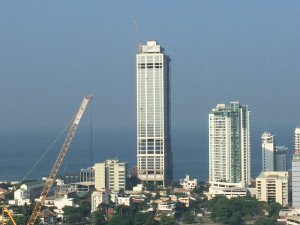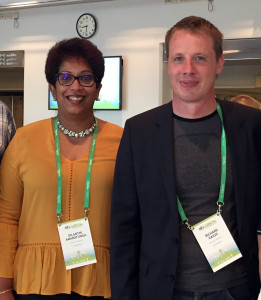The past decade has seen a concentration of disaster events causing major social, economic and financial impacts. In order to tackle these increasing losses, the Sendai framework for disaster risk reduction 2015–2030[1], endorsed by 187 UN states in 2015, promotes disaster risk reduction practices.
There has been growing recognition that the construction industry and associated built environment professions are a vital component of this capacity. The scale, size and impact of the built environment cannot be ignored. In the UK for example, construction is one of the largest sectors of the economy. It contributes almost £90 billion to the UK economy (or 6.7%) in value added, comprises over 280,000 businesses covering some 2.93 million jobs, which is equivalent to about 10% of total UK employment[2]. It generates about 9% of gross domestic product (GDP) in the European Union and provides 18 million direct jobs.

The United Nations has issued a stark warning to the world’s business community that economic losses linked to disasters are “out of control” and will continue to escalate unless disaster risk management becomes a core part of business investment strategies.
CADRE
In recognition of these challenges, an EU funded project entitled CADRE (Collaborative Action towards Disaster Resilience Education), was launched in 2014 and was funded by the European Commission, to identify mechanisms to mainstream disaster resilience in the construction process.
CADRE has been successful in capturing labour market requirements for disaster resilience; its interface with the construction industry and its professionals and identifying stakeholder requirements helping to mainstream disaster resilience within the construction process and thereby to identify how to integrate disaster risk reduction in construction practices.
Words into action

Professor Dilanthi Amaratunga and Professor Richard Haigh have been appointed to Chair a ‘Words into Action’ working group who will develop a UN guidebook on Construction Policy and Practice targeting governments, construction industry bodies and construction firms around the world to help prevent and recover from natural and man-made disasters. The guidebook will incorporate the results of the CADRE study, including thirteen key knowledge gaps and key themes identified among construction professionals as part of CADRE, and a series of recommendations to key actors in the built environment on how to more effectively mainstream disaster resilience in the construction process.
The guide will be published in early 2018 and copies will be supplied to all 187 countries that were signatories to the Sendai Framework for Disaster Risk Reduction. The guide is being developed in conjunction with the Royal Institution of Chartered Surveyors (RICS) and with input from other construction professional bodies.
In addition, CADRE is also providing the basis for an innovative professional doctoral programme (DProf) that integrates professional and academic knowledge in the construction industry to develop societal resilience to disasters.
[1] United Nations International Strategy for Disaster Reduction (2015). Sendai framework for disaster risk reduction 2015–2030. Geneva: UNISDR.
[2] Department for Business Innovation & Skills (2013) UK Construction: An economic analysis of the sector, July 2013.

Spotlight
Global Disaster Resilience Centre
The CADRE project is led by Professor Dilanthi Amaratunga, Professor of Disaster Risk Management at the University of Huddersfield. The other team members are Professor Richard Haigh, Professor of Disaster Resilience, Dr Kaushal Keramniyage, Senior Lecturer, and Dr Chamindi Malalgoda, Research Fellow. The team carries out world leading research in disaster resilience and is part of the Global Disaster Resilience Centre based in the School of Art, Design and Architecture. The partners in this project are: Vilnius Gediminas Technical University, Lithuania; Tallinn University of Technology, Estonia; Northumbria University, UK; the United Nations International Strategy for Disaster Reduction, Switzerland; University of Moratuwa, Sri Lanka, and the Federation of Sri Lankan Local Government Authorities, Sri Lanka. For more information about the research in this article please contact Professor Dilanthi Amaratunga, d.amaratunga@hud.ac.uk.
Summer 2017 Issue
Return to the home page for the Summer 2017 Issue of Discover.
Next article
Organisations which prioritise the continual improvement and innovation of their existing practices often use Lean processes such as...
